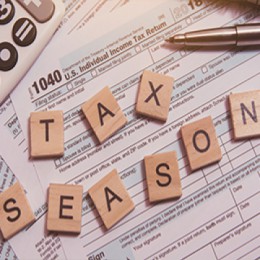
As the holidays approach, scammers and fraudsters kick their efforts into overdrive. They like to prey on the giving spirit of the season and if you’re not careful, you could take a bigger financial hit than what you plan on spending on your holiday shopping list. Familiarize yourself with a few of the top holiday scams that pop up every year around this time and how to avoid them:
Gift Card Scams
The Gift Card Scam is one of the most common scams out there, holiday season or not, and it’s one of the hardest to get reimbursed for. This scam can occur in a number of different ways. Regardless of how the events unfold, there is one key red flag to watch for: if you’re asked to make a payment, pay a fee or ‘send back’ money in the form of gift cards, it’s likely that you are in the midst of a scam.
Once the gift cards are activated and the numbers are in the hands of the scammer, it’s very unlikely that you will get those funds back. Remember, the only thing you should do with gift cards is to buy them from legitimate stores, and use them for your own shopping or gifting – not to give to someone else as payment.
Fake Charities
The holidays are a time for giving, which is why charitable scams pop up every year around the holidays. You may receive a letter or email where fraudsters impersonate a legitimate charity or make up a charity you’ve never heard of, but seems legitimate. In either scenario, they steal your money by tugging at your heartstrings. Often, the fraudsters will make fake websites that take “donations” through PayPal.
Be sure to do your research if you’re wanting to donate to a charity this holiday season. You want your money to go towards ‘good’, not funding evil money grifter. Watch for fraudsters to impersonate anyone, from national charities to local non-profits, food pantries, or homeless shelters.
Package Theft & Package Delivery Scams
If you’re doing a lot of your shopping online this holiday, it’s common to get a text or email notifications about the tracking of your packages.
When receiving these notifications, it’s important to be diligent. Scammers send out phishing emails or texts disguised as UPS, FedEx or U.S. Postal Service, or even Amazon notifications of incoming or missed deliveries. Links lead to phony sign-in pages asking for personal information, or to malicious links infected with malware. If you aren’t expecting a package, don’t expect a tracking text or email.
If you’re worried about the tracking of your package, it’s probably a good idea to go directly to your source for the tracking number. This could be the email confirmation of your purchased order that provides a link to tracking, or input the tracking number directly into the carrier’s official and legitimate website, and verified tracker.
Finally, it’s always important to remember the increase in package theft during this time of year. Thieves know that there will be an increase of packages sitting around on doorsteps and may attempt to grab them up. Be vigilant with a security camera or the ever-popular security doorbells. It’s also good to request delivery to a more secluded part of your home where thieves would be less likely to see your package if you can.
Fake Freebies
A good rule of thumb is if it’s too good to be true it probably is. If you’re on social media or surfing the web for holiday deals and you see huge discounts on hot gift items, beware. This could be a phishing scam trying to get you to click a malicious link, or buy an item that seems like a good deal but then upon delivery, you’re not actually getting what you thought.
Temporary Holiday Jobs / Quick Cash for the Holidays
See an ad claiming quick cash for a job? It might be enticing, especially with the holidays so close. But many of these quick cash job advertisements or notifications are cruel schemes to get money.
Here’s how it works: They might ask you to wrap your car in a ‘company’ logo and drive around. To do this, they will send you a check (most likely it’s a fraudulent check) and then tell you to keep some for the wrap, some for payment, and to send the rest back either via money or gift cards. Later, you find out from your financial institution that the check is fake and that you owe back all that money.
Fake Websites
Ads are all over the internet, especially during the shopping season, claiming great deals or a gift that catches your eye. But just because a website seems secure or legit doesn’t mean it is. When visiting your go-to website, be sure to type in the URL exactly correctly. Many scammers spoof websites with one wrong letter or number in hopes that you’ll type something wrong and end up at their website that is stealing your information or infecting your computer with malware if clicking on additional links on the page.
Online Loans
If you're looking for loans online for a holiday or other financing, it's important to be cautious and beware of online loan scams! Websites that claim easy approvals for loans may hook you, but they’ll also hook you for your personal, or financial information and scam you out of money. If they ask for your online banking login information to ‘deposit a check’ – don’t give it to them. It’s best to look for trustable, maybe even local ways to finances your holiday shopping or get through the end of the year financially.
Warning Signs
- Spelling errors or questionable grammar on a shopping website or in an email.
- A website that does not list a phone number or street address for the business and offers only an email address or a fill-in contact form.
- A website that does not have a privacy policy.
- Sites without signs of secure encryption like “https://” or a padlock symbol (although, beware just because they have them doesn’t mean they’re not a scam).
- An unsolicited email that asks you to click on a link or download an app to access a deal or arrange a delivery.
How to Avoid Getting Duped
- Scroll your mouse over links in emails and social media ads to display the true destination URL.
- Do your research.
- Go directly to the legitimate website of a retailer or delivery carrier.
- Check return/refund policies when shopping unfamiliar or suspicious sites.











0 comments